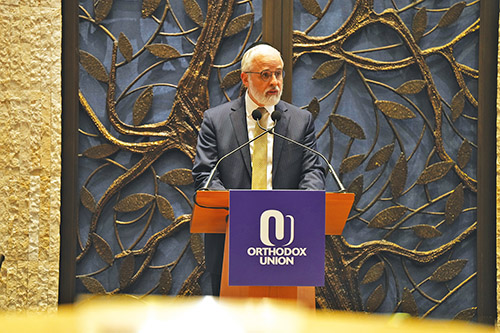
We easily see in others, and with difficulty see in ourselves, how mistakes are repeated and obvious lessons ignored. We know it is critical for us to learn from experience and yet sadly, we—as individuals and as a society—often fail to do so. How do we change this pattern?
The greatest example of this failure is Pharaoh, who hardened his heart—both on his own and by the hand of Hashem—and refused to learn obvious lessons. Even when he did seem to get it, he, sooner or later, snapped back to his old intransigence. If we study this story of Pharaoh and the Jews closely, we can identify an effective strategy to combat this universal challenge.
Hashem had said that a goal of the miracles of the Exodus was to both help the Egyptians to know that He is God and move the Jewish people to tell the story of these miracles to their descendants (10:1-2). This provides a striking contrast as both the Jews and the Egyptians were equal witnesses to the miracles, yet the Egyptians allowed what they learned to be forgotten, while we, a millennia later, continue to teach it to our children, remember it daily and commemorate its anniversary.
This contrast was presented at the opening of our parsha in the prelude to the plague of the locusts. It was as a result of this plague that Pharaoh seemed to bend, granting us leave to serve Hashem, but then asking “mi vami haholchim—who would be going.” Moshe responded that to serve God we would go with young and old, with both our sons and our daughters. Pharaoh refused this, saying that if you are going to serve God, then only the adult males would need to go (10:8-11).
Here lies the gap between the Jews and the Egyptians. For them, it appeared that the service of God was reserved for the man of the house; while for us, it is a way of life that includes all of us—young and old, male and female. Our experiences become our values, shaping and forming our lives and the direction we provide our children. We are not meant to simply learn something and store it away. We are to integrate it into our living and thinking, and share it with our children.
This is not just a strategy to make sure our children are informed. This is how we build an attitude of learning and changing from experiences. We grow and change, when we take every meaningful encounter and lesson learned and not simply pocket it—but, rather, build it into what we teach and share it with our children and those around us. By reflecting on all we see and sharing our observations with our families, we become true lifelong learners and ensure that the lessons of life are not forgotten.
Rabbi Moshe Hauer is executive vice president of the Orthodox Union (OU), the nation’s largest Orthodox Jewish umbrella organization.











